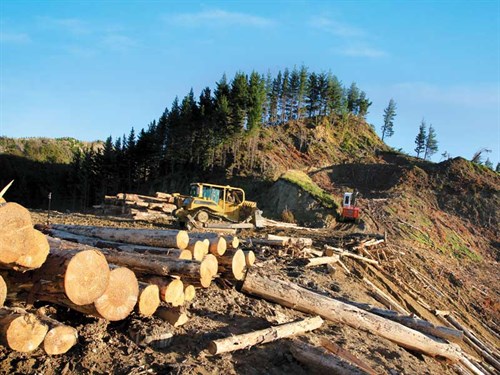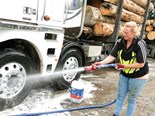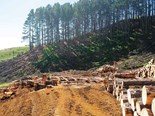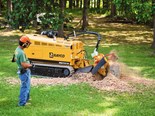Logging apprenticeship
In his latest column, Patrick Cox discusses if the logging industry will be recognised as a trade, such as builders, plumbers, and electricians
Earlier this year, free funding for the first two years of study was introduced. Following this, industry training organisation Competenz rolled out new apprenticeship training for manual and mechanical operations.

Does this mean that the logging industry will be recognised as a trade, such as builders, plumbers, and electricians? Will a logger become a certified or licensed tradesperson?
I don’t think so, because the industry training is too fragmented. You can become a qualified mechanised harvest operator or a qualified quality controller, or a qualified manual operations person. But how much time will it take to link all these together to become a fully qualified logger?
I believe that after the completion of an industry apprenticeship, you should be qualified to undertake all aspects of forestry work. In the ’80s, I was a qualified senior logger with skills that covered all aspect of the forest industry, which meant, I was qualified to do any job in the logging industry.
There will be some who have been in the industry for the last 40 years and have undertaken some form of training or have participated in developing training systems for loggers. For my part, back in the mid-’80s, I was a qualified senior logger with skills—as my certificate stated.
Leading up to this qualification, I spent many hours and months working with trainers on different techniques to gain my ticket. My senior logging ticket with skills is long expired now and has been superseded by different types of training and modules.
A quick browse on the internet to see what’s on offer if you are looking for forestry work and how to get training from a technical institute revealed that to apply, you need to be 16 years old, have basic reading and writing skills, and have the physical ability to complete the programme.
My concern here is that there are a number of excellent young people who have slipped through the school system without getting a good basic education through no fault of their own. This is a fact and from my past experience, I can say that some bushmen (and women presumably) do not have good reading and writing skills, but that does not mean they are dumb. In fact, many pass their qualifications by being tested orally.
A number of good workers do not apply for such online jobs for the simple reason of hiding behind the embarrassment of not having good reading and writing skills.
What’s on offer at technical institutes is only a pathway to gain a low-level qualification into the logging industry. Classroom learning for this sort of work just does not stack up. If you were an apprentice in a recognised trade, such as a builder, you would start on the job getting the practical expertise and be required to take classroom study as well.
There is an answer out there and Forestry Minister Shane Jones might be the go-to man to see it happen, but it might take some time.
A couple of weeks ago, the New Zealand Government launched the Forest Service in Rotorua. The Forest Service of old had their own logging crews and also had control over a big percentage of the Government forest. Sadly, previous Governments sold off all the assets and the new Forest Service is nothing more than a building full of people on public-funded money.
It makes sense for the new Forest Service to put in place their own logging crews scattered around the country to offer training services to all. The continued focus on training people to operate machines for mechanised logging is going backfire.
Crosscutters are now a rare breed. I had a conversation with a logging contractor recently, who runs a large mechanised operation with a staff of 25. The only one qualified as a crosscutter/faller was the owner himself. He made an interesting comment that at 45, he was probably one of the youngest qualified crosscutters.
Crosscutters are demanding big money. An upper Northland contractor I spoke to said she has to pay $60 an hour to drop the trees she cannot reach with the harvester. Does that mean that crosscutters are becoming freelance operators on hire? That’s big bucks and I guess there is an opportunity here for an apprenticeship in crosscutting.
It is the specialist job of logging and always has been. With modern forestry workers sitting in comfort behind the controls of a logging machine, are the younger ones too frightened of hard work like crosscutting where the big dollars are?
My concern with the government funding of training workers is the money going to the fringe riders of the logging industry, those not actually at the tree face. If a logging crew takes on an apprentice, then they should be the ones who get the Government support.
Keep up to date in the industry by signing up to Deals on Wheels' free newsletter or liking us on Facebook.

.jpg)















